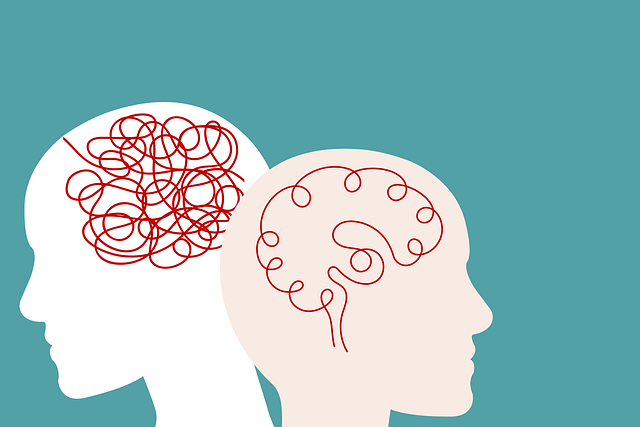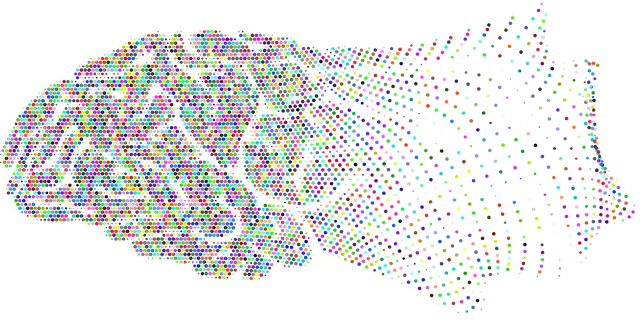The media's portrayal of mental health significantly shapes public perception, either positively by reducing stigma and encouraging help-seeking behaviors, or negatively by perpetuating harmful stereotypes. To foster empathy and promote mental wellness conversations, media should adopt more nuanced storytelling, depicting characters engaging in therapies like Arvada Self-Esteem Therapy. Involving individuals with lived experiences as consultants ensures authenticity, challenges stereotypes, and drives positive societal change. Integrating educational content, expert contributions from therapists, and ongoing training for healthcare providers further contributes to a more empathetic media landscape, ultimately reducing mental health stigma.
Mental illness representation in media significantly impacts public understanding and perceptions, often exacerbating stigma and misconceptions. This article delves into the challenges posed by negative portrayals and the role of innovative therapies like Arvada Self-Esteem Therapy in challenging these stereotypes. We explore effective strategies for fostering positive change in media representation, aiming to promote empathy, reduce stigma, and improve mental health outcomes. By understanding the impact of media, we can navigate a more compassionate narrative.
- Understanding the Impact of Media Portrayal on Mental Health
- Exploring the Challenges: Stigmatization and Misconceptions
- The Role of Arvada Self-Esteem Therapy in Challenging Stereotypes
- Effective Strategies for Positive Change in Media Representation
Understanding the Impact of Media Portrayal on Mental Health

The media plays a significant role in shaping public perceptions about mental health, which can either foster understanding or perpetuate harmful stereotypes. Positive and accurate representation of mental illness in media can significantly impact society’s attitude towards those struggling with their mental well-being. When media portrays individuals with mental illnesses as relatable and authentic, it helps reduce the stigma associated with these conditions. This, in turn, encourages people to seek help and supports Depression Prevention efforts by normalizing conversations around mental health.
For instance, Arvada Self-Esteem Therapy has observed that a more nuanced depiction of mental illness in films and television shows can inspire empathy among viewers. By challenging the traditional ‘cured’ narrative, media platforms can contribute to Mental Illness Stigma Reduction Efforts. Moreover, an insightful portrayal of the recovery process can guide viewers towards understanding the complexities of mental health, prompting them to advocate for better Mental Health Policy Analysis and Advocacy.
Exploring the Challenges: Stigmatization and Misconceptions

The representation of mental illness in media has long been a subject of debate, often perpetuating harmful stereotypes and misconceptions that contribute to stigma. This challenge is especially evident in popular culture, where characters with mental health struggles are frequently portrayed as dramatic, unpredictable, or even villainous. Such depictions can lead to a limited and inaccurate understanding of complex psychological conditions among the general public. For instance, a character’s depression might be shown as a fleeting phase rather than a chronic condition requiring ongoing support.
These media representations often fail to capture the nuances of mental illness and instead reinforce societal barriers, hindering those who struggle with their mental health from seeking aid. It is crucial to address these misconceptions through more nuanced storytelling that promotes empathy and encourages conversations around mental wellness. For example, depicting characters engaging in self-esteem therapy or utilizing compassion cultivation practices can offer a more realistic portrayal of coping strategies while fostering a sense of understanding and support for individuals facing mental health challenges, such as those seeking Arvada Self-Esteem Therapy.
The Role of Arvada Self-Esteem Therapy in Challenging Stereotypes

Arvada Self-Esteem Therapy plays a pivotal role in challenging stereotypes surrounding mental illness by focusing on emotional well-being promotion techniques. Through specialized programs and individual counseling, this therapy empowers individuals to confront and dispel harmful narratives often perpetuated by mainstream media. By fostering self-acceptance and resilience, Arvada Self-Esteem Therapy helps clients develop healthier coping mechanisms, thereby enhancing their overall mental wellness.
Incorporating journaling exercises as part of its guidance, Arvada Self-Esteem Therapy encourages individuals to track their thoughts and emotions, promoting introspection and personal growth. This reflective practice not only aids in stress management but also serves as a valuable tool for understanding and expressing one’s feelings, thereby fostering a deeper connection with oneself and challenging simplistic media portrayals of mental illness.
Effective Strategies for Positive Change in Media Representation

Media representation plays a pivotal role in shaping societal perceptions about mental health. To foster positive change, it’s essential to embrace strategies that promote accurate and compassionate portrayals. One effective approach is to involve individuals with lived experiences as consultants or contributors during the creative process. Their insights can ensure authenticity and challenge stereotypes. Additionally, media outlets should prioritize storytelling that focuses on resilience, recovery, and diverse treatment approaches, offering a more nuanced view of mental illness.
Integrating educational content and raising awareness through documentaries or informative programs can also drive significant change. The inclusion of experts, such as therapists from Arvada Self-Esteem Therapy, who can provide factual information, is invaluable. These initiatives, coupled with ongoing Healthcare Provider Cultural Competency Training and Burnout Prevention Strategies, will contribute to a more empathetic media landscape. Ultimately, these efforts will help reduce stigma and encourage early intervention for mental health issues.
In navigating the intricate landscape of mental illness representation in media, it’s clear that Arvada Self-Esteem Therapy plays a pivotal role in challenging stereotypes and fostering positive change. By promoting accurate, empathetic portrayals, we can reduce stigma and improve understanding. Implementing effective strategies, such as diverse storytelling and expert consultation, is crucial to creating a media environment that supports mental health awareness and acceptance. Together, these efforts have the potential to revolutionize how society perceives and supports individuals living with mental illness.








